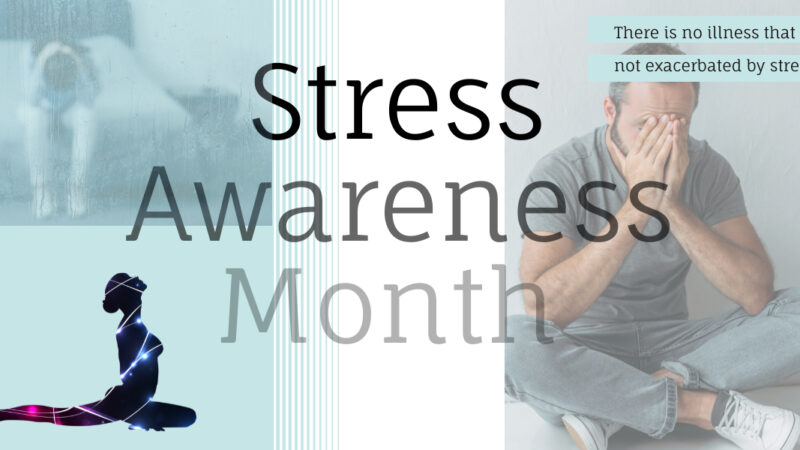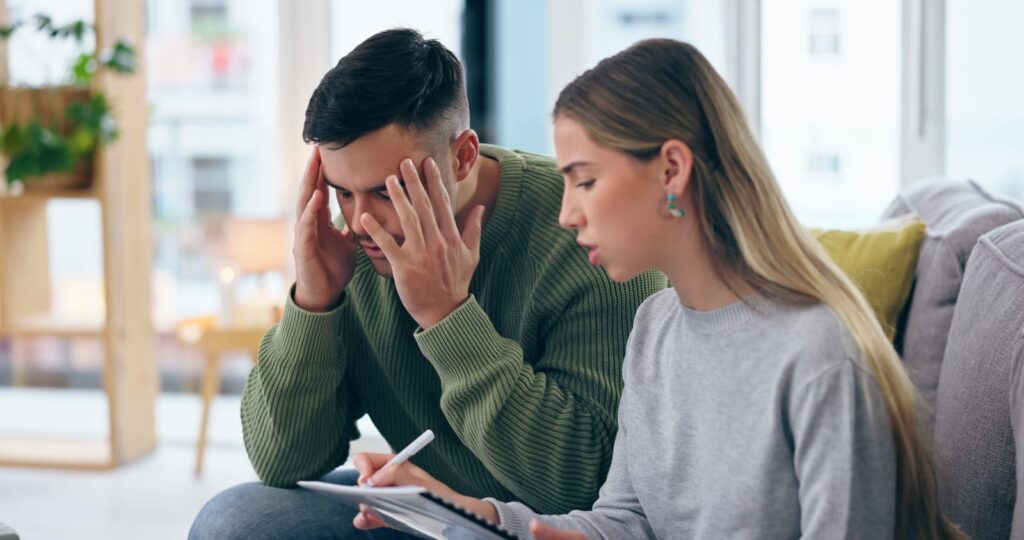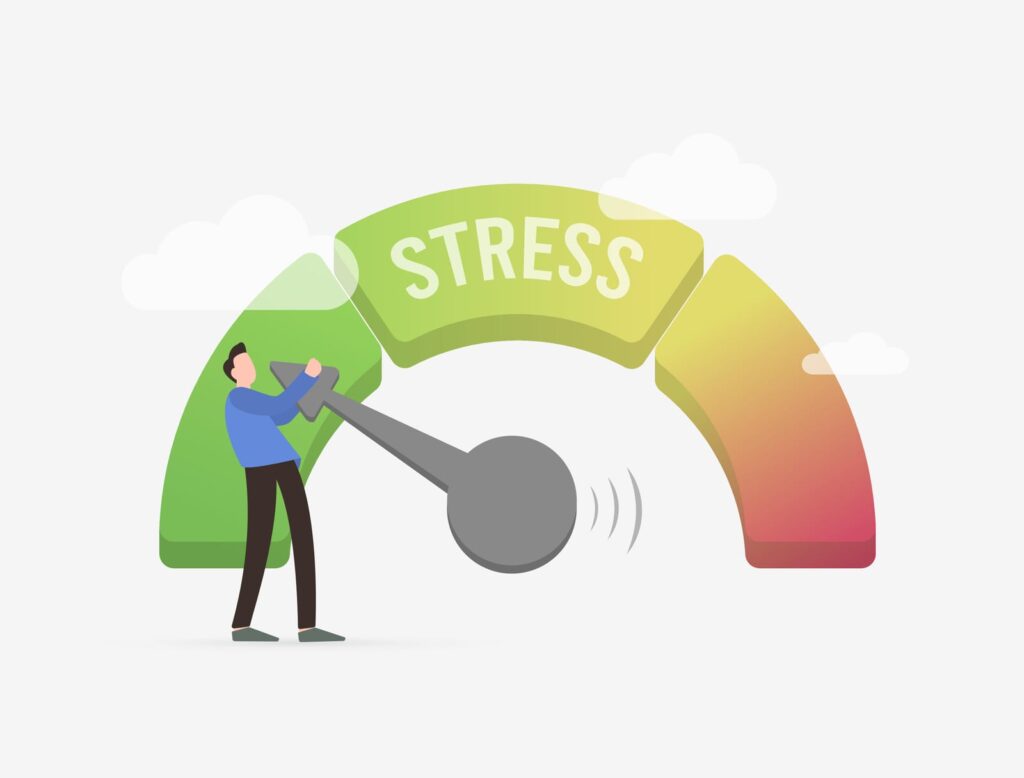
Stress Awareness Month: Understanding and managing stress
East Basildon PCN supports Stress Awareness Month and understands the importance of patients and the community being aware of stress and how to manage it.
April is Stress Awareness Month, a time to acknowledge the impact of stress on our mental and physical health.
This blog explores the prevalence of stress in the UK and offers practical tips for managing it effectively.
Help to manage anxiety and depression
If your mental health is being affected in a negative way by stress and you need to find support for your anxiety or depression, visit this link on our website for more information.
Stress advice by a GP
Watch this video about stress and what the GP advises about good and bad stress:
The impact of stress
As we delve into the realm of stress awareness, it becomes evident that a staggering 74% of adults in the UK have experienced overwhelming stress in the past year.
This statistic alone sheds light on the pervasive nature of stress in our society, highlighting the pressing need to address this issue.
Stress is not merely a fleeting emotion but a significant contributor to mental health problems such as anxiety and depression.
The detrimental effects of stress extend beyond our emotional well-being and seep into our physical health, manifesting as conditions like heart disease and insomnia.
Understanding the multifaceted impact of stress is crucial, as it empowers us to take proactive steps towards mitigating its harmful effects.
By acknowledging the prevalence of stress and its repercussions, we can cultivate a supportive environment that fosters mental and physical well-being.
Stress Awareness Month
April marks Stress Awareness Month, an opportune time to engage in open dialogue about stress and its ramifications. It presents an opportunity for individuals to share their experiences and coping mechanisms, fostering a culture of understanding and support.#
To learn about 10 stress busters that can help you cope with stress in your life, visit the NHS website via this link.
Reducing Stigma
One of the first steps towards combatting stress is to dismantle the stigma surrounding it. By initiating candid conversations about stress with friends, family, and colleagues, we can create a safe space for individuals to seek help and support.
Sharing Coping Mechanisms
Sharing personal coping strategies can be immensely beneficial, as it not only helps others facing similar challenges but also offers a sense of solidarity and community. Small gestures of kindness and empathy towards those struggling with stress can make a significant difference.
Self-Care
Prioritising self-care is pivotal in managing stress effectively. Taking time to relax, engage in activities that bring joy, exercise regularly, and maintain a balanced diet are essential components of self-care that nurture overall well-being.
Embracing a holistic approach to stress management entails recognising the interconnectedness of our mental and physical health.
By prioritising self-care, fostering open communication, and extending compassion to those grappling with stress, we pave the way for a healthier and more resilient society.
Reducing stigma and building support

As we delve into stress awareness this month, it is crucial to acknowledge the prevalence of stress in our lives.
According to the Mental Health Foundation, a significant 74% of UK adults have experienced overwhelming stress in the past year, impacting their ability to cope effectively.
This alarming statistic underscores the urgent need to address stress management and support systems across the nation.
Stress not only affects our mental well-being but also plays a detrimental role in our physical health.
From anxiety and depression to heart disease and immune system deficiencies, the repercussions of stress are far-reaching and pervasive.
It is imperative that we not only recognise our own sources of stress but also extend a helping hand to those around us who may be struggling.
Talk openly about stress
To combat the stigma associated with stress, we must initiate open and honest conversations about this prevalent issue.
By sharing our experiences and insights with friends, family, and colleagues, we can create a supportive environment where individuals feel comfortable discussing their stressors.
Speaking openly about stress not only reduces the taboo surrounding it but also encourages others to seek help and support when needed.
Share coping mechanisms
Sharing effective coping mechanisms is a powerful way to support those around us who may be facing stress.
If you have found certain strategies or activities helpful in managing stress, do not hesitate to share them with others.
Whether it’s practising mindfulness, engaging in physical exercise, or maintaining a creative outlet, sharing coping mechanisms can provide solace and guidance to individuals navigating challenging times.
Show compassion and empathy
When interacting with individuals experiencing stress and anxiety, displaying compassion and empathy goes a long way in offering support.
Understanding that stress is a common human experience can help us approach others with kindness and sensitivity.
By lending a listening ear, offering words of encouragement, and providing assistance when needed, we can create a culture of empathy and understanding towards mental health challenges.
Self-care
In addition to supporting others, it is essential to prioritise self-care during times of stress.
Taking moments to relax, engaging in activities you enjoy, maintaining a healthy lifestyle, and setting boundaries are all integral components of self-care.
By nurturing our own well-being, we equip ourselves with the resilience and strength to navigate stressful situations effectively.
Moving forward together
As Stress Awareness Month unfolds, let us commit to do the following:
- reducing stigma
- fostering support networks
- cultivating a culture of empathy and understanding towards mental health challenges
Together, we can create a community where stress is acknowledged, addressed, and navigated with compassion and solidarity.
Self-care strategies

April is Stress Awareness Month, and it’s essential to acknowledge the impact stress has on our mental and physical health.
According to the Mental Health Foundation, a significant percentage of adults in the UK have experienced overwhelming stress in the past year, leading to various health issues such as:
- anxiety
- depression
- heart disease
- immune system problems
- insomnia
- digestive issues
It’s crucial for each of us to identify the sources of our stress and take proactive steps to manage and reduce it.
Here are some strategies that can help:
1. Take time to relax and engage in activities you enjoy
Self-care is not selfish; it’s necessary for maintaining your well-being.
Set aside time in your day to unwind and do things that bring you joy. This could be through:
- reading a book
- taking a walk in nature
- practicing a hobby
2. Prioritise exercise and healthy eating habits
Physical activity and a balanced diet play a significant role in managing stress.
Regular exercise releases endorphins, the “feel-good” hormones. While proper nutrition provides your body with the essential nutrients it needs to function optimally.
3. Learn to say No to overwhelming requests
Saying no is not a sign of weakness; it’s a sign of self-awareness and self-respect.
Boundaries are crucial for maintaining your mental and emotional well-being.
Don’t hesitate to decline additional responsibilities or commitments that exceed your capacity.
Reduce stress and anxiety with physical activity
Watch this video on how to reduce stress and anxiety with physical activity | Reece Parkinson x Every Mind Matters, NHS
Protecting you mental and physical health
During Stress Awareness Month, let’s open up conversations about stress. We need to break the stigma surrounding it, and offer support to those in need.
Remember to be kind to yourself and others, practice self-care daily, and prioritise your mental health above all.
Manage stress effectively by incorporating relaxation techniques, exercise, and proper nutrition into your routine.
Set boundaries and prioritise self-care to protect your mental and physical well-being.
“Reducing stress is not a luxury but a necessity for a healthy mind and body. Let’s take proactive steps to care for ourselves and support those around us.”
Finding support
If you or someone you know is being affected by stress, you can find help through third-party services.
They are here to support the NHS and the GP practices in your community.
For more information about third party services that can help you understand and manage stress, visit this page on our PCN website for more details.

